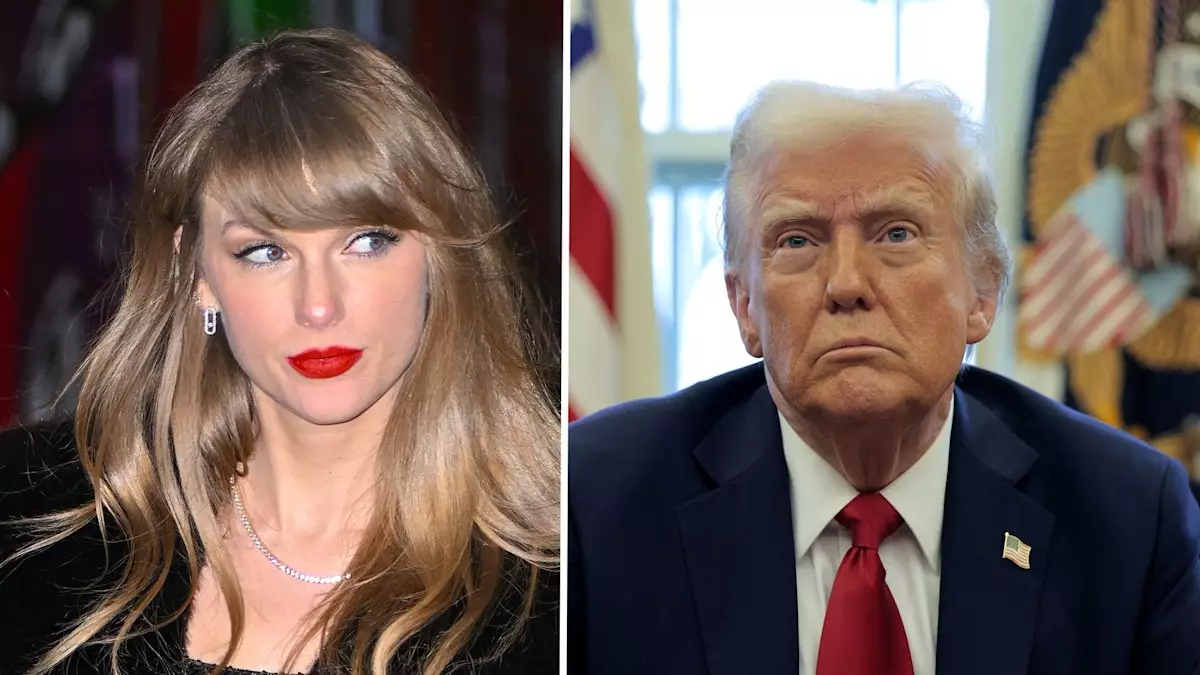In a world where social media allows for instantaneous communication, former President Donald Trump’s recent remarks about Taylor Swift have ignited a new wave of media scrutiny and public conversation. Using his preferred platform, Truth Social, Trump took to declaring, “I HATE TAYLOR SWIFT,” following up with a bizarre comment insinuating that her appeal had waned since their public feud began. It’s puzzling that a former U.S. President would use such vitriol towards a pop star, especially when that pop star has made significant cultural and political statements that resonate with millions.
Trump’s fixation on Swift is indicative of a deeper issue: the intertwining of celebrity culture and politics in today’s discourse. By targeting Swift and later criticizing Bruce Springsteen, who expressed concerns about the current administration’s integrity, Trump seems to exemplify a troubling trend where figures in power expend their energy disparaging artists rather than engaging with the substantive issues those artists highlight.
The Artist as a Political Beacon
Taylor Swift’s journey into the political sphere marks a pivotal change for artists in American culture. Once seen as untouchable figures of entertainment, contemporary celebrities are increasingly stepping into the role of advocates for social change. Swift’s endorsement of Democratic candidates such as Phil Bredesen and Kamala Harris was not merely a personal choice; it was a declaration of her values and those of countless supporters who turn to her for guidance. Her political activism, particularly highlighted in her 2020 documentary, positions her as a representative of younger generations disillusioned by the current landscape.
The former President’s response to Swift’s political engagement reveals an inability—or perhaps unwillingness—to acknowledge the power of art as a vehicle for change. By suggesting she will “pay a price in the marketplace” for her endorsements, Trump not only seeks to undermine her influence but also makes a troubling statement about the consequences of voicing one’s beliefs in a democratic society.
Striking Back with Humor and Sarcasm
The sharpness of Trump’s comments, particularly towards Springsteen, serves as a reminder of his style—heavy on mockery and dismissive rhetoric. Referring to Springsteen as a “dried out ‘prune'” is an attempt to mock the artist’s aging appearance while sidestepping any substantive discussion regarding the messages Springsteen delivers in his music and activism. This tactic of personal attacks rather than engaging in critical dialogues about America’s political climate reflects a broader decline in discourse where style clashes with substance.
Interestingly, Trump’s comments inadvertently draw attention to the very issues he attempts to dismiss. By bringing attention to Swift and Springsteen, he not only keeps them relevant but also engages their fanbases in conversations that transcend personal grievances. The cultural ripple effects of these exchanges hint at a larger societal reckoning, where both artists and politicians must confront the implications of their words and actions.
The Complexity of Celebrity Endorsement
What is fascinating, yet slightly ironic, about this whole debacle is the duality of public perception. While Trump disparages artists like Swift, his own family members, including his daughter Ivanka and granddaughter Arabella, embrace her influence. These contradictions highlight the complexities of celebrity endorsement in our political landscape—within the same family, one might admire Taylor Swift while another publicly derides her.
This dynamic raises critical questions about loyalty, belief, and identity within American society. If the very people closest to Trump are avid fans of Swift, can he truly represent the sentiments of the broader population? It showcases how deeply personal relationships with culture can diverge from political affiliations, emphasizing the role of celebrity as a multifaceted entity that transcends simplistic narratives of politics.
The Cultural Stakes of Celebrity Feuds
At the end of the day, conflicts like the one unfolding between Trump and Swift are emblematic of larger cultural battles. They spotlight not only the ongoing war for influence but also the blurred lines that continue to exist between politics and entertainment. As Swift and Springsteen find their voices within a volatile landscape, it’s crucial for the public to discern between political rhetoric and the deeper questions raised by their artistry.
In an era where celebrity opinions are followed with fervor, the stakes are higher than ever. Both Trump and his opponents, including artists like Swift and Springsteen, must navigate the complexities of their platforms in ways that reflect this new reality. As the lines between the stages of political power and the concert halls blur, the future promises further intricate explorations of what it means to be an influencer in a democratic society.

